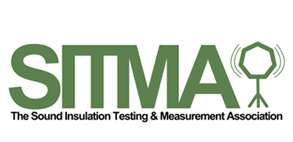Offices Nationwide

How loud is too loud?
Continued exposure to noise above 85 dBA (adjusted decibels) over time will cause hearing loss. The volume (dBA) and the length of exposure to the sound will tell you how harmful the noise is.
In general, the louder the noise, the less time required before hearing loss will occur.



Reverberation Time
The ‘reverberation time’ of a space changes the way the space ‘sounds’ and can affect the intelligibility acoustic information. A high reverberation time can make a room sound muffled, loud and noisy. Rooms designed for speech typically have a low reverberation time, whereas a higher reverberation time can add depth, richness and warmth to music.
The reverberation time of a room is defined as the time it takes for sound to decay by 60 dB after an abrupt termination. It is linked to the total quantity of soft treatments and the volume of the room.



Sound Absorption
The loss of sound energy when sound waves come into contact with an absorbent material such as ceilings, walls, floors and other objects.



Air Testing & Leakage
We have a checklist you can download for Air Leakage Testing. If you follow our air tightness checklist, this will improve your likelihood to achieve a pass!


Copyright 2025 E2 Specialist Consultants Limited
Company No. 06728970

































